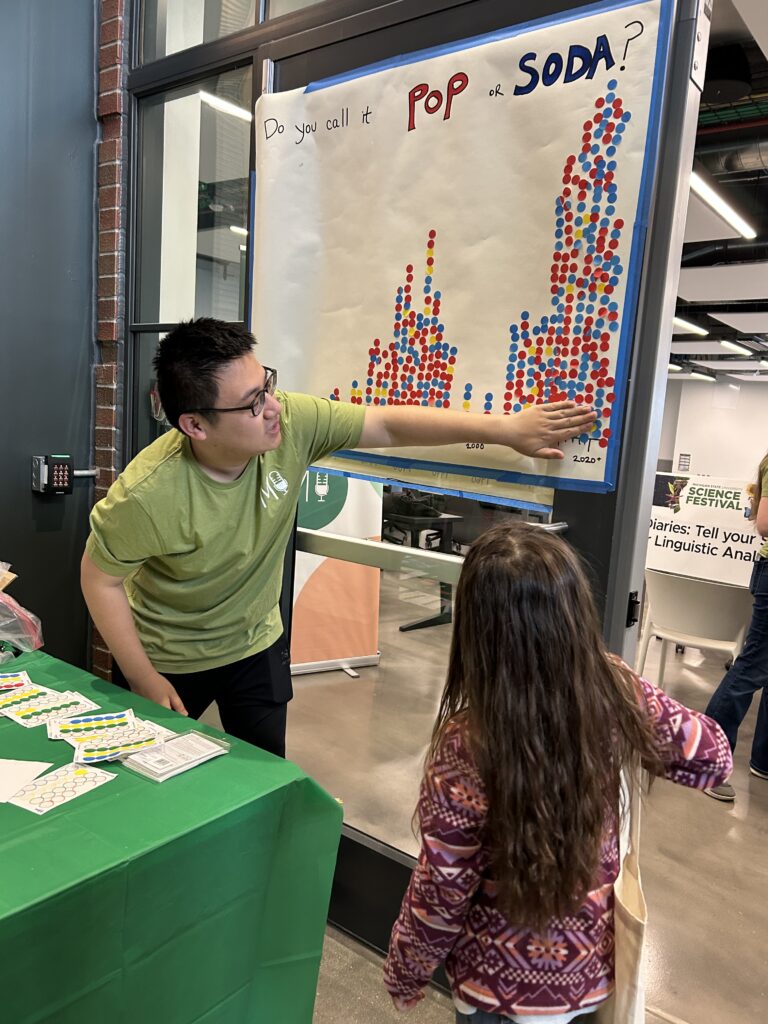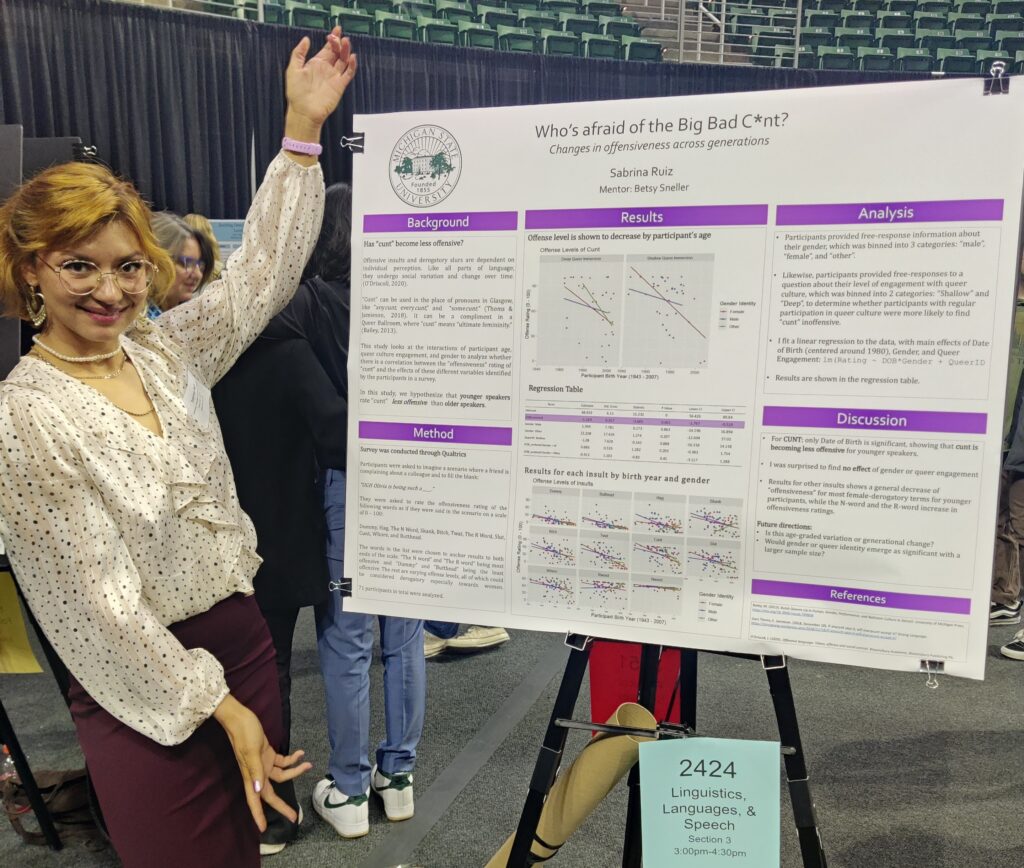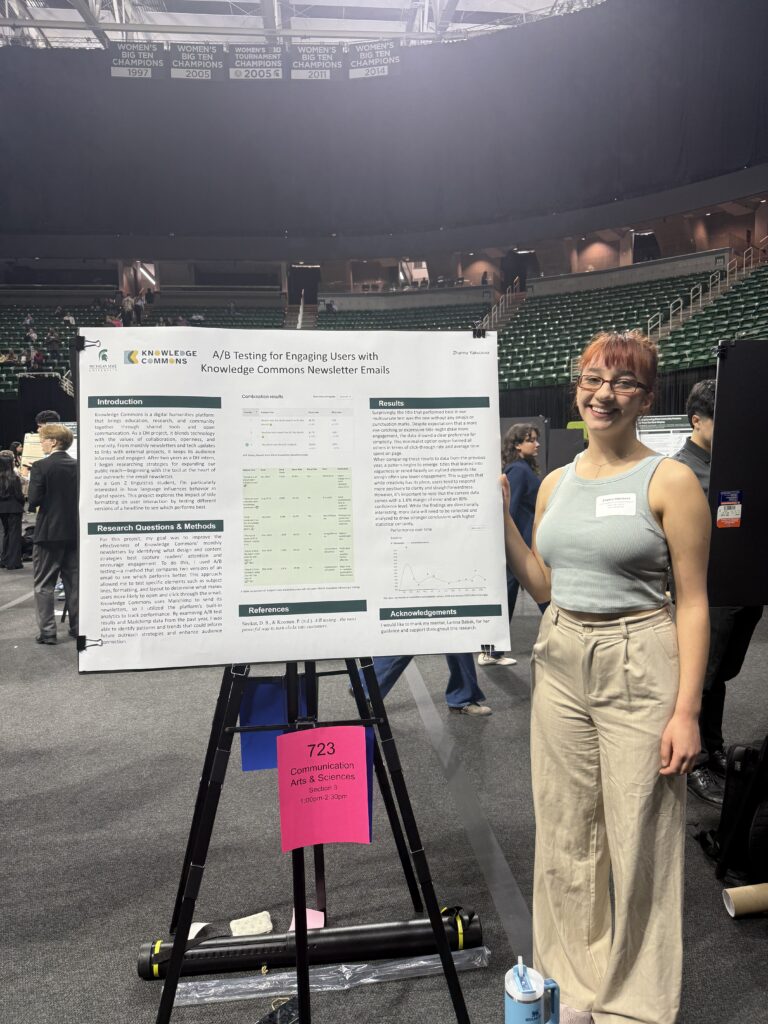Michigan State Presenting at LSA 2026
Five MSU linguists (including Sociolinguistics Lab members Mofart Ayiega & Leah Nodar) will be presenting their work at the Linguistics Society of America’s annual conference, taking place this year in New Orleans from January 8th – 11th!
Please find their talk titles below:
- Mofart Ayiega (co-authored with Dr. Suzanne Wagner) – Morphological Leveling of Noun Class Agreement in Urban Swahili
- Dr. Leah Nodar – Twelve Variables of Africatown English in 1927 and 1979
- Jingying Xu (co-authored with Dr. Cristina Schmitt):
- Beyond Truth Conditions: Context Modulates Telicity Interpretation
- Learning Telicity in Context: Developmental Evidence from Mandarin Children
- Ellie Xia (co-authored with Dr. Alan Hezao Ke) – Tonal Marking of Telicity in Hakka: An Agree-Based Analysis
- John Ryan (co-authored with Yaxuan Wang) – Reference, Aspect, and Event Completion in Mandarin Sentence Judgments
Click ‘Continue Reading’ for abstracts.



